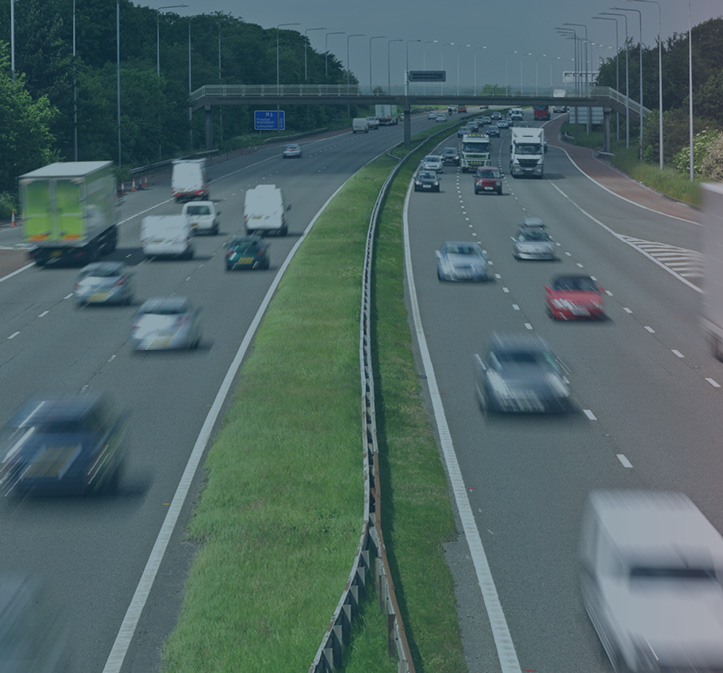The Highway code and automated vehicles – what’s changing?
3rd May 2022

Following a consultation which closed in May 2021, the Department for Transport published a draft amendment to The Highway Code on 20 April 2022, recommending the introduction of a new section for self-driving vehicles.
Automated Lane Keeping System (ALKS) technology
Automated Lane Keeping System (ALKS) technology will be the first type of ‘hands-free’ driving to be legalised in the UK. The Secretary of State will need to list which vehicles are approved as Automated Vehicles, however the regime for approval of such vehicles is yet to be finalised.
ALKS technology is currently limited to use on motorways, in single lane traffic and at speeds of up to 37mph. However, development of the technology is anticipated, which may see the technology permitted at greater speeds, and allowing lane changes. This more advanced ALKS technology is expected to be introduced from as early as January of 2023 and with this in mind, it is doubtful that motor vehicle manufacturers will seek to introduce the ‘lesser’ ALKS technology in vehicles and on our roads, when the newer ALKS limits are expected to be introduced in less than a year. With that in mind we would be surprised to see this technology on our roads before next year.
What’s included in the new Highway Code section?
The draft amendment can be found here and:
• It adopts the term ‘self-driving’ to describe automated vehicles under the Automated and Electric Vehicles Act 2018
• Sets out the differences between self-driving and assisted technologies
• States that when a self-driving vehicle is driving itself in a valid situation, the driver is not responsible for how the vehicle drives, and may turn their attention away from the road, and may also view content through the vehicle’s built-in infotainment system
• Reminds drivers that they must be fit to drive (within the drink drive legal limits and not be under the influence of drugs), their vehicle must be road legal and roadworthy, with drivers still responsible for their passengers and anything else they are carrying
• States that drivers must not do anything illegal, including using a hand-held mobile phone, or similar hand-held device
What concerns are there around the amendment?
The adoption of the term ‘self-driving’ to describe AV’s is a concern to many in the industry. The Department for Transport have adopted this terminology as it is understood better by members of the public than autonomous vehicles, however the fear is that the public will assume that vehicles described as ‘self-driving’ are fully self-driving, when in actual fact there will be significant limits to the extent of the technology when it is initially introduced.
Some respondents to the original consultation felt that ALKS technology should not be considered automated vehicle technology at all, due to several shortfalls in safety and capability, including the inability to see UK traffic signage or to find safe harbour.
Concerns were also raised around the availability of incident data recorded by the system. Issues surrounding the recording of data and the sharing of data have been ongoing, and a solution is vital to ensure that the responsibility for any accidents which occur can be correctly and quickly established.
When will the AV Highway Code changes come into force?
The changes are expected to be introduced to Parliament in the Summer and will need to lay before both Houses of Parliament for a period of 40 days. Provided no objection is received from Parliament the changes can be introduced immediately, though the DfT may choose to delay these until the changes can be introduced to the hard-copy versions (though they did not do this for the previous changes which introduced the hierarchy of road users). A public awareness campaign of some description will also be expected, making existing as well as new drivers aware of the changes.
What about e-scooters?
The Highway Code changes to cover self-driving vehicles – an as yet not introduced technology, may have you questioning the Government’s priorities. With the illegal use of private e-scooters on roads and pathways prevalent and growing (private e-scooter numbers were estimated at 750,000 in a PACTS report dated March 2022) the market is surely beginning to wonder why Government hasn’t taken steps to address this growing issue, and introduced very necessary regulation, setting out safe riding recommendations within the Highway Code.
If you would like to discuss this topic further, then get in contact with our Head of Market Affairs, Natalie Larnder on nlarnder@keoghs.co.uk.
Related Articles
-
- Article
- Claims Solutions
- Legal Solutions
- Insurance Solutions
- Consulting
- Technology
Davies focuses on an end-to-end offering to help the broker community tackle increased regulatory complexities at BIBA 2022
LONDON, UK – 27 April 2022 – Davies, the leading specialist…
-
- Acquisition
- Technology
Davies strengthens its technology offering & accelerates into the regulatory technology market through the acquisition of Worksmart
LONDON, UK – 4 April 2022 – Davies, the leading specialist…
-
- Article
- Insurance Solutions
2022 Predictions: FCA and Treasury will seek appointed representative oversight improvements
This article was first published in CIR Magazine. Regulators have been…
-
- Article
- Legal Solutions
Get to know our people: Natalie Larnder – Head of Market Affairs, Legal Solutions
Tell us about your role – what do you do and…



